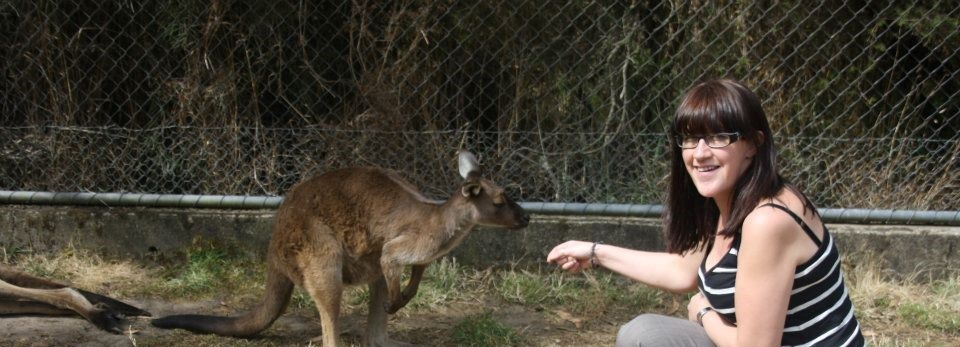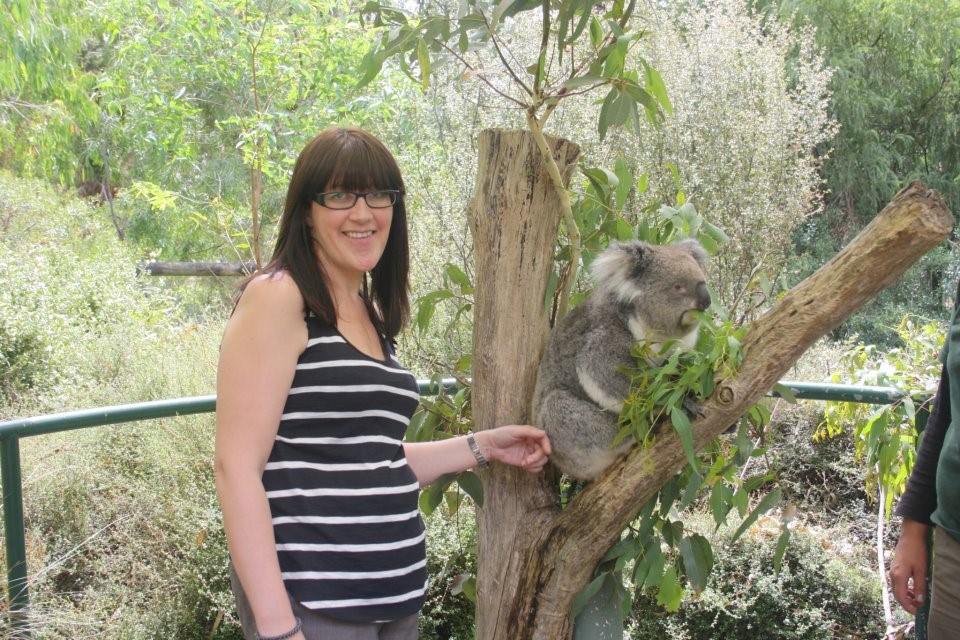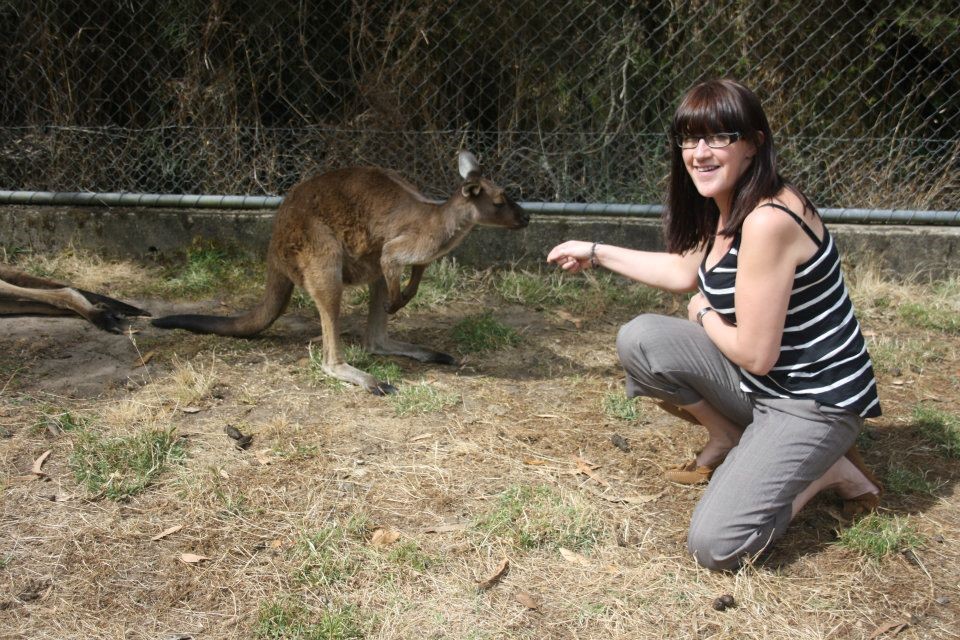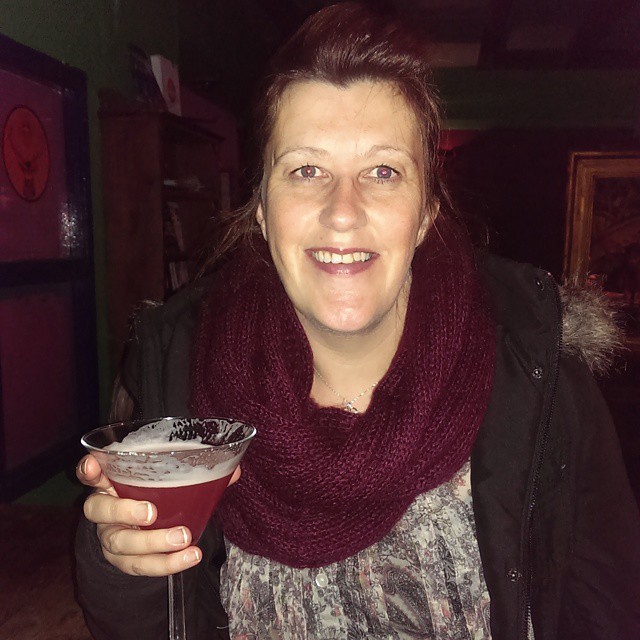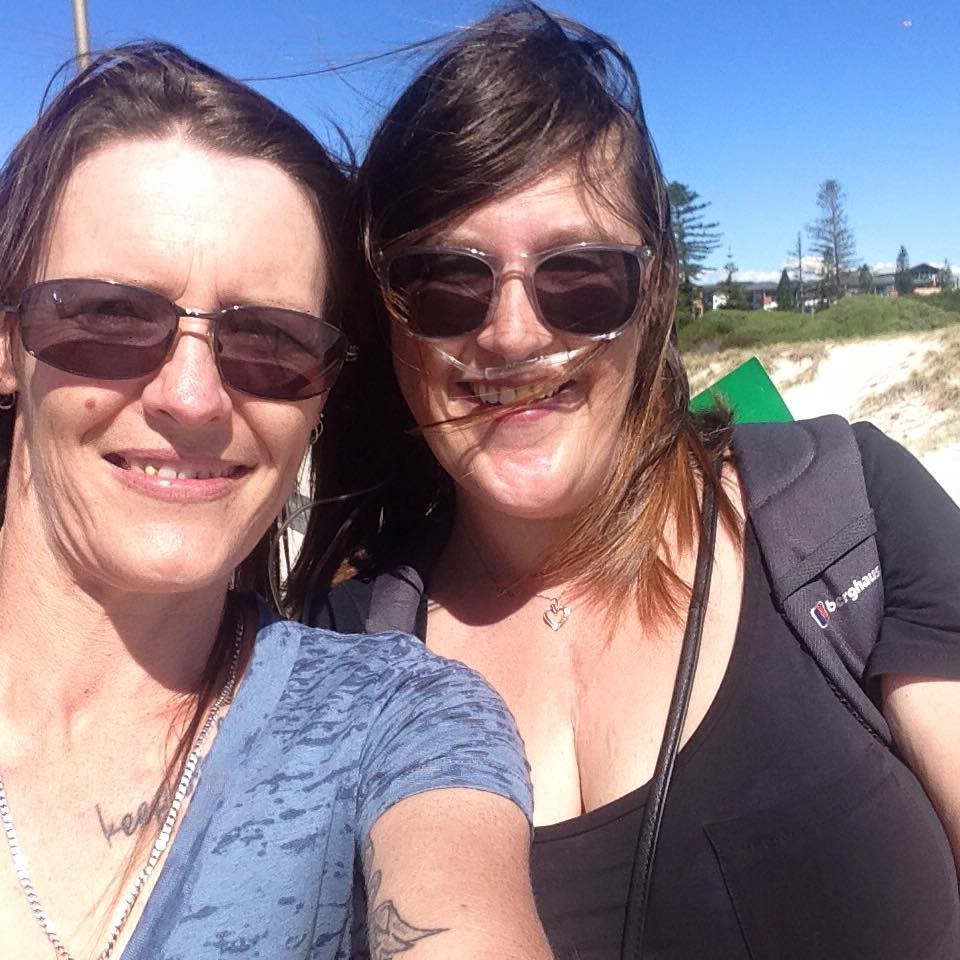PH on both sides of the world
Joanne Kelly, who now lives in Lancashire, spent four years as a pulmonary hypertension patient in Australia before moving back to the UK. Here, she discusses her experiences at both ends of the globe.
“I was born with a rare congenital heart defect called transposition of the great arteries, and was one of the first babies to receive the new ‘mustard procedure’, which involved redirecting blood flow to ‘revamp’ the heart.
The procedure meant that babies with the condition were able to live near-normal lives and I went on to marry and have two beautiful children of my own.
Five-and-a-half years ago, my husband was offered a job over in Adelaide, South Australia, and along with our daughters we took the opportunity to make the move.
Joanne with a koala in Australia Joanne with a kangaroo in Oz
Up until this time I was very active and, despite my limitations, quite fit. I worked full-time, rode horses, walked for miles and led an ordinary life. We walked for hours during weekends in Australia, admiring the scenery and animals this beautiful country had to offer. I also started a very physical job as a housekeeper in a busy hotel in the city, and life was good.
Almost overnight though, this changed. I began feeling very tired and achy, couldn’t walk as far, and wanted to sleep most of the day.
Sensing that something was wrong, I went along to my local GP who then referred me to a rheumatologist for tests. Eventually, I started on medication for fibromyalgia, but continued to decline until a point where my GP said ‘enough is enough’ and sent me to an emergency department at hospital. From this point, life as I knew it changed.
Diagnosis
After a 12-day stay in hospital I received the news that my heart was failing due to the congenital heart disease and consequent heart operations I had undergone. I was advised that because my heart had been made to work in a different way, it had become very tired.
I was in shock as I hadn’t been to a cardiologist in 18 years. I have since found out that most ‘mustard babies’ (those who received the procedure I had), had been seeing one every year of their lives. Somehow, it seemed, I had got lost in the system.
And so I started seeing a lovely cardiologist based in the city’s main hospital, who specialised in adult congenital heart disease and had previously worked in Birmingham’s Adult Congenital Heart Disease (ACHD) centre.
After seeing him every three months for three years he wasn’t happy that my symptoms weren’t improving. My shortness of breath and exercise intolerance were getting worse, and so was the fatigue.
My cardiologist fought tirelessly for me to find out why, and eventually he decided to trial me on Sildenafil, which enabled me to start to walk a bit further and improved my breathlessness.
He also decided to do a heart catheter with exercise, where I moved my legs in a scissor movement as a catheter was placed through an artery in my arm. It was then, a year after moving to Australia, that I was diagnosed with pulmonary hypertension.
I felt useless, but the mobility scooter and oxygen gave me a new lease of life.
I began seeing a lung consultant to measure oxygen levels on a six-minute walk test, and she concluded that I would benefit greatly from oxygen, which was another big lifestyle changer for me.
In Adelaide, PH is treated under a PH specialist cardiologist, but I stayed with my original cardiologist and the two liaised together. The lung specialist oversaw the oxygen level side.
I was started on a higher dose of Sildenafil, Macitentan, the blood thinner Waferin, and also my oxygen. I hired a mobility scooter as I lived on a hill, didn’t drive and so was unable to take daily trips out or do the shopping. I felt useless, but the mobility scooter and oxygen gave me a new lease of life.
Moving back
Around this time, we decided to move back to the UK for work and family reasons, but also because of my health and fear of the unknown. It was a very hard decision and a huge upheaval; so much harder than moving out to Australia when I was fit and healthy.
Since moving back to Lancashire I have noticed many differences in terms of both medical treatment and in people’s attitudes.
I cannot fault the care on moving back to the UK – I was quickly sorted out with oxygen, medication and appointments at Birmingham ACHD centre (I was referred there rather than Sheffield because of my congenital issues, and the two centres liaise closely together.)
However, in Adelaide, I was used to having my next appointment made on the same day I attended the hospital, which gave me a sense of security.
I do sometimes feel that because of the UK’s fantastic specialist PH centres, some GPs and hospital departments feel they can ‘pass the buck’ onto them – which can make me feel like I’ve been left out on the washing line, with no idea when my next appointment will be.
In Adelaide, the GPs worked closely with the specialists, phoning them during my appointment if they needed advice or were concerned. I haven’t experienced the NHS as a chronically sick person before, but I do feel the differences in care between Australia and the UK are vast in terms of patient support.
Changing attitudes
I find the attitudes of people in general in the UK differ to Australia too. Over here, we tend to be less accepting of people who have disabilities, or who use mobility aids.
I get a lot of stares when I am out and about on my scooter and have become more self-conscious since moving back here. I feel like this country needs more education about the needs of the chronically sick, in order for people to become more accepting of those who are different.
To be honest. support within inner communities for those with long-term illnesses is lacking in both countries, but the PH associations in Australia and the UK are both good.
The weather in Australia helped me because it’s basically summer and spring all year round. I found the hot weather days quite a lot harder on my breathing, but it was a small price to pay for the sunshine. Since moving back, I have noticed both differences and similarities between the two countries. With its fantastic specialist centres, I feel that the UK leads the way in terms of facilities and knowledge – but my experiences of support and social attitudes in Australia have been better.”
Joanne enjoying a drink Joanne having fun in the sun with her friend
